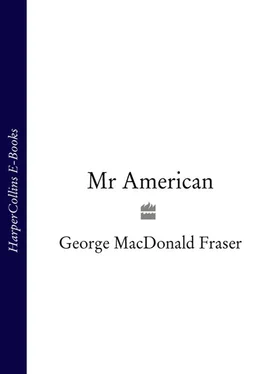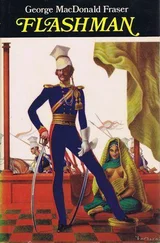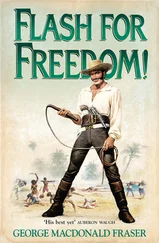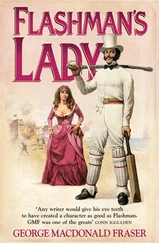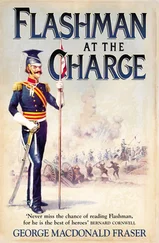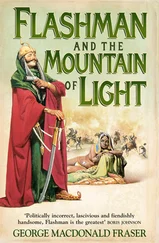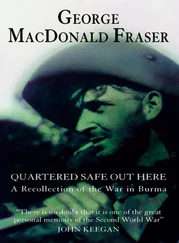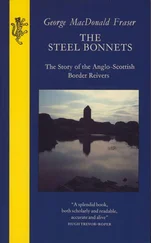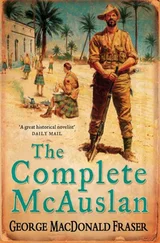Five pounds at the Monico … ten cents at Yancy’s if you hadn’t any grub of your own to bring … eggs at a dollar apiece when the boom was at its height at Tonopah … the Indian girl baking bread at Hole-in-the-Wall, and Sundance Harry Longbaugh burning his fingers on the crust … tortillas and flapjacks, and his father frying bacon and corn that morning after the Battle of Shrewsbury on the El Paso road … “No beef this trip, son … ‘I am a great eater of beef, and I believe it does harm to my wit’” … the old man saying grace over the frying-pan … salmon and shrimps in champagne sauce … that steak and fried onions at the Bella Union, with the tin plate on his knees as he sat on the trunk watching the door, looking over a balcony rail just like this one, but instead of the orderly parties of diners in their evening finery, eating off china and crystal and snowy cloths, with waiters hovering – instead of that, the huge crowded bar-room of the big bonanza time, with bearded, booted miners capering on the tables with the sluts, yelling and sprawling and smashing furniture while the fiddlers on the stage scraped out, “Hurrah, boys, hurrah!” and the long bar was three-deep with drinkers, awash with beer and red-eye, while he finished his steak, touching the hilt of his Remington every so often as his eyes ranged over the inferno of celebration, looking for the Kid and his gang, and old Davis snoring drunk on the bed with his britches round his ankles… and he had sat through that thundering, boozing, carousing night on the tin trunk, drinking coffee with his back to the wall, shaking his head at the brown girl with smoky eyes in the red silk dress, and she had tossed her head and spat in disappointment and left him to his determined vigil in the brawling, bawling Bella Union, with a fortune in silver six inches beneath his pants-seat….
“You haven’t heard a word I’ve been saying, have you?” Pip was laughing at him across the table. “Where were you? Renzo wants to know if you want Bordeaux or Burgundy – unless you want to carry on with the bubbly?”
Of course they continued with the champagne, and as they ate their splendid dinner in the velvet-lined little private cabinet on the second floor, Mr Franklin wondered if it was the working of the wine that made him enjoy himself more and more with each passing minute. No, to be fair, he decided, it was Pip herself; she was merry and animated and full of gossip, about the theatre, and herself, and her eccentric parents and their large family, who appeared to live on laughter and a portion of her earnings, and about London, which was all the world to her, and her ambitions, which consisted simply of being the Queen of Musical Comedy some day, and strutting the boards of the West End, singing the latest rude songs, having hosts of admirers waiting at the stage door, preferably in carriages with crests – and marrying one of the richest and most noble of them? wondered Mr Franklin.
“No,” said Pip, and sighed. “I’m not the kind they marry. Oh, plenty from the chorus finish up as My Lady – they say half the heirs to the Lords married Gaiety Girls, and it’s not far wrong. But I like the theatre, you see – couldn’t be happy away from it, and all the noise and chat and fun. I couldn’t give that up. Can’t see me in a stately home, dishing out tea – not while there’s curtains going up and orchestras playing my cue.” She laughed. “I’m just a shameless, painted hussy of the variety stage – common as dirt and glad of it. You have to be, if you want to get to the top of my trade – look at Marie Lloyd, she’s no lady, but she’ll be topping the bill until she drops, no matter how fat she gets. Maybe I’ve got a little of what she’s got – not just the voice, and the figure, and the cheek, but – well, you know, it’s how you put it over. If I’ve got it, then I’ll go on until I drop, too – and if I haven’t, I’ll prob’ly finish up married to some sobersides in Ealing, if I’m lucky, with six kids and a couple of maids.” She chuckled happily. “Sing ’em ‘Boiled Beef and Carrots’” at the church social, too. Meantime, I’m enjoying myself, so who cares? Anyway,” and she stretched a hand across and patted Mr Franklin on the arm, “I’m fed up talking about me, and you must be, too. What about you, Mr American? You’ve just sat all evening, very polite and quiet, listening to me gassing on and on and on, and you haven’t said a word about little ole New York, or Redskins, or anything.” She pushed her plate aside, put her elbows on the table, cupped her chin in her hands, and smiled eagerly. “I’m listening.”
It took him by surprise – but what was even more surprising was that he found himself responding. Later, he was to reflect that in all his life he had hardly ever talked about himself – certainly not to a stranger, and that stranger a woman. Perhaps it was the novelty or, he was prepared to admit, that he was under the spell of that lively beauty hanging on his every word. It did not occur to him that Miss Pip Delys, the professional performer, could be as skilled a listener as she was a prattler. In any event, he found himself talking – about half-remembered Nebraska, and about the time of wandering, with his itinerant schoolmaster father, from one small settlement to another – “I don’t even remember their names, just the wall-paper in the rooming-houses where we stayed; one or two of them didn’t have wallpaper” – and later, the brief years as ranch-hand, railroad ganger, timber-jack, miner, and transient on the dwindling frontier; it was a fairly bald recital, and far from satisfying Pip’s curiosity, which was evidently well-grounded in comic papers and Colonel Cody’s Wild West Show.
“Weren’t you ever a cowboy, with them hearth-rug things on your legs? Didn’t you have to fight Indians, or rustlers? You must have had a six-gun, surely …?”
“Yes, I was a cowboy,” he said, smiling. “Anyway, I worked with cattle – it isn’t all that fun. No, I didn’t fight Indians, or rustlers – there aren’t really many of them about, nowadays. A six-shooter? Yes – mostly for scaring prairie dogs.” There was no point in telling her of that night of waiting at the Bella Union for the Kid and his cronies. But it was in his mind when she asked her next question.
“Outlaws? Now, why on earth should I know any such people? D’you think America’s peopled by bandits and pistoleers? You’ve been reading dime novels.”
“Well, you can’t say there aren’t any!” said Pip indignantly. “I mean, it didn’t get called the Wild West for nothing, did it? Why, I don’t suppose we’ve had an outlaw in England since … oh, since Robin Hood. I just thought – if you’d been a cowboy –”
“That I might have been a road agent myself, on the side? Texas Tommy, with pistols stuck in a crimson sash and a big sombrero?”
This sent her into peals of delight. “Course not! Though you could look the part, you know – you really could! Specially when you come all over grim and thoughtful – like when you were thinking, faraway, down on the balcony. Made me all goose-pimply.” She shuddered deliciously. “You might have been planning to rob the stage to Cactus Gulch, or –”
“You’ve got a real theatrical imagination, I’ll say that for you.” He shook his head. “If you must know, I’ve seen outlaws, one or two – and they look pretty much like anyone else, only a bit more in need of a bath. Matter of fact, my old mining partner, Pop Davis – he’d been outside the law in his time, I guess. But you wouldn’t have thought much of him – looked just like any old tramp. He was all right, though. Good partner.”
“But the other ones,” she insisted. “You said one or two – what were they like?”
Читать дальше
